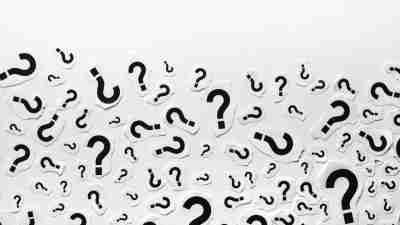Controlling ADHD Symptoms with 10 Supplements and Vitamins

Studies have shown that medication is effective in managing ADHD symptoms in many children and adults. However, parents often hesitate to start their child on medication due to potential side effects and the fact that medications may not work the same way for every child. As a result, some parents seek natural remedies such as nutrition, exercise, and supplements to help manage their child’s ADHD symptoms.
It is important to note that a supplement provides basic nutrients for optimal health and function that may not be obtained solely from food. Supplements may include vitamins, minerals, proteins, and fats, but do not include herbal or botanical ingredients such as ginkgo or St. John’s wort. It is recommended that a physician be consulted to help incorporate supplements into a treatment plan, as managing supplements and other integrative treatments requires expertise.
One well-researched supplement for ADHD is omega-3 fatty acids, often given in the form of fish oil. Numerous studies have found benefit in the areas of hyperactivity, attention, or impulsivity. The optimal dose is still unknown, but a total of 1,000 mg for smaller children, 2,000 mg for adolescents, and 1,500 mg for those in between is recommended, with 1.5 to 2 times as much EPA as DHA. Zinc has also shown positive research results for ADHD symptoms, and 20-25 mg can be safely given daily without a blood test. Vitamin D levels should be checked and supplemented if low or borderline low. Iron levels should also be checked, as children with ADHD often have low ferritin levels, which can improve ADHD symptoms when treated with supplemental iron.
I recommend supplementing with iron if a child has a ferritin level under 30. It is important to use a chelated iron product, which reduces the problem of constipation or stomachaches. I usually begin with 30-40 mg. of elemental iron a day, and measure ferritin levels again in three to six months.
It is important that children with ADHD have adequate amounts of a wide range of vitamins and minerals, but until recently, there has been little research suggesting that taking a multivitamin/multimineral was helpful for ADHD. Research indicates that a specific multivitamin/multimineral combination is effective for kids who have ADHD and emotional dysregulation, often displayed by oppositional children.
Daily Essential Nutrients is made by Hardy Nutritionals. In one study, the micronutrients in this formulation reduced impairment and improved inattention, emotional regulation, and aggression. DEN did not improve hyperactive/impulsive symptoms. The downside is that it is expensive, and a child has to take six pills a day. It’s possible that other multivitamins have similar effects, but they have not been well-studied.
This mineral won’t directly improve attention, but it can calm hyperactivity and agitation, which compromise attention. I find magnesium helpful for children who have a “rebound effect” after their stimulant medication wears off. A child can safely take 100-300 mg. of elemental magnesium twice daily in the form of magnesium glycinate, citrate, or chelate. The citrate form tends to lead to loose stools.
Inositol is found in very small amounts in many foods. In concentrated doses, it helps to counter agitation and anxiety. I recommend 12-18 grams a day divided into two or three doses for adults. The dose for kids would be calculated based on their mass.
This herb has been used to improve cognitive function for thousands of years. A couple of small studies have shown that it may be helpful in children with ADHD. A recent double-blind randomized study looked at adding ginkgo to a stimulant that children were already taking. Some children took ginkgo plus a stimulant, while others took a placebo and a stimulant. Those who took the ginkgo had a 35 percent better response rate in terms of improving attention. It had no effect on hyperactivity or impulsivity. I use 60 mg., twice a day, for children.
Bacopa and gotu kola, which are part of Ayurvedic medicine (the traditional medicine of India), have both been used to treat ADHD, but western medicine has done little research on them.
One herb, St. John’s wort, is often recommended for children with ADHD, but research shows that it helps with mood disorders, not ADHD. A study on using St. John’s wort to treat ADHD reached the same conclusion: It did not help. This study was discussed in the June 2008 issue of the Journal of the American Medical Association. View the study abstract.
Among the many questions parents ask me when thinking about natural supplements for ADHD are: How can supplements help? Are they a substitute for ADHD medication, or can they be used together? How long do they take to work? Can they have side effects?
Sandy Newmark, M.D., is a member of the ADDitude ADHD Medical Review Panel.
SUPPORT ADDITUDE Thank you for reading ADDitude. To support our mission of providing ADHD education and support, please consider subscribing. Your readership and support help make our content and outreach possible. Thank you.




